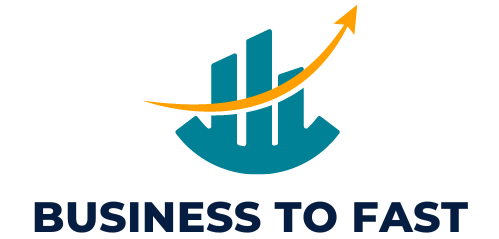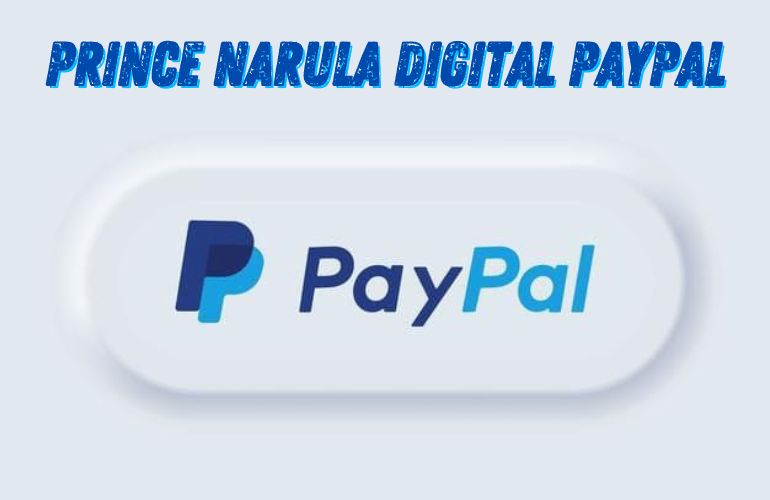
Welcome to an exploration of executive coaching with Pedro Vaz Paulo. This introduction sets the stage for a deeper understanding of how personalized coaching can amplify leadership abilities and organizational effectiveness. At the heart of Pedro Vaz Paulo’s approach is a focused strategy that transforms leadership styles and enhances team dynamics, making it a key asset for executives looking to elevate their professional trajectory and organizational influence.
Pedro Vaz Paulo, a seasoned executive coach, offers a program grounded in real-world experience and tailored to address the unique challenges faced by today’s leaders. Whether you are aiming to improve decision-making, foster innovation, or drive strategic execution, this article will guide you through the distinct aspects of Pedro Vaz Paulo’s coaching process, its benefits, and the profound impact it can have on you and your organization.
Join us as we explore the integral role of an executive coach, the structure of a coaching engagement, and the lasting changes past clients have experienced. This journey through the facets of executive coaching will equip you with the insights needed to enhance your leadership capabilities and achieve your professional goals.
The Role of an Executive Coach
The role of an executive coach is multifaceted, blending elements of mentorship, strategy consulting, and personalized development to elevate the effectiveness of leaders within an organization. Pedro Vaz Paulo, an experienced executive coach, embodies these roles through a nuanced approach that addresses the individual needs of each client.
Mentorship and Guidance: An executive coach acts as a mentor, offering guidance based on years of experience and expertise. For leaders, having a seasoned mentor like Pedro Vaz Paulo can be transformative. He provides not only advice but also support as executives navigate complex decisions and leadership challenges. This relationship fosters a safe environment for leaders to discuss issues openly and gain valuable insights.
Strategic Consulting: Beyond traditional mentorship, executive coaching often involves elements of strategic consulting. This includes analyzing business challenges, identifying areas for improvement, and suggesting actionable strategies that align with the company’s goals. Pedro Vaz Paulo helps leaders to clarify their vision and align their personal goals with the broader objectives of their organizations, ensuring that their actions and decisions propel the company forward.
Development of Leadership Skills: Central to the role of an executive coach is the development of key leadership skills. This includes enhancing communication abilities, improving interpersonal relations, and fostering a leadership style that encourages innovation and team cohesion. Pedro Vaz Paulo works closely with clients to identify and cultivate these skills, tailored to their specific role and industry.
Accountability Partner: One of the most critical roles of an executive coach is serving as an accountability partner. In this capacity, Pedro Vaz Paulo ensures that leaders not only set realistic and ambitious goals but also follow through on their commitments. Regular check-ins and updates create a rhythm of accountability that keeps leaders focused and on track.
Emotional and Social Intelligence: As leadership roles become increasingly complex, the emotional and social components of executive functioning grow in importance. An executive coach like Pedro Vaz Paulo aids leaders in understanding and managing their own emotions, as well as interpreting and reacting to the emotions of others in the workplace. This emotional and social intelligence is crucial for managing teams effectively and fostering a positive work environment.
Through these roles, Pedro Vaz Paulo enhances the capabilities of leaders, enabling them to perform at their best. His coaching goes beyond simple advice-giving; it is a dynamic and interactive process that transforms leaders and, by extension, the organizations they lead.
Core Pillars of Pedro Vaz Paulo’s Coaching Methodology
Pedro Vaz Paulo’s executive coaching methodology is built on several core pillars that are designed to foster growth, adaptability, and effective leadership. These foundational elements guide the coaching process and ensure that each engagement is tailored to the individual’s needs and the strategic objectives of their organization.

Tailored Development Plans: Every leader has unique strengths, weaknesses, and professional goals. Recognizing this, Pedro Vaz Paulo designs personalized development plans that address specific leadership skills and growth areas. These plans are not static; they evolve as the leader progresses, adapting to new challenges and opportunities as they arise. This personalized approach ensures that the coaching remains relevant and impactful throughout the leader’s journey.
Continuous Feedback and Assessment: Feedback is a critical component of any developmental program. Pedro Vaz Paulo provides continuous feedback, allowing leaders to understand their progress and identify areas needing further improvement. This ongoing assessment helps maintain a focus on key growth areas and ensures that leaders are constantly advancing towards their professional objectives.
Transforming Leadership Mindsets: At the heart of effective leadership is the right mindset. Pedro Vaz Paulo focuses on cultivating a mindset that embraces change, challenges conventional thinking, and fosters resilience. This transformation is crucial for leaders to navigate the complex and often volatile business landscape. By altering how leaders perceive and react to their environments, they can drive innovation and inspire their teams more effectively.
Emotional and Social Intelligence: Leaders who excel in emotional and social intelligence are better equipped to manage teams, handle stress, and lead organizational change. Pedro Vaz Paulo emphasizes the development of these competencies to enhance interpersonal interactions and leadership effectiveness. This focus includes training on emotional regulation, empathy, social skills, and the ability to motivate and inspire others.
Strategic Execution and Accountability: Effective execution of strategies is what ultimately drives business results. Pedro Vaz Paulo coaches leaders on not only setting ambitious goals but also effectively executing these strategies. This involves detailed action plans, regular progress reviews, and mechanisms for accountability. Leaders learn to align their personal actions with broader business strategies, ensuring that their day-to-day activities contribute to organizational success.
By integrating these core pillars into his coaching, Pedro Vaz Paulo ensures that leaders not only achieve their immediate goals but also prepare to meet future challenges. This comprehensive approach is what sets his coaching apart and drives significant transformations in both leaders and their organizations.
Key Focus Areas and Benefits of Executive Coaching
Pedro Vaz Paulo’s executive coaching targets several key areas that are integral to effective leadership and organizational success. His approach is designed to enhance a leader’s performance, which in turn benefits the entire organization. Below are the primary focus areas of his coaching program, along with the benefits they bring.
Strategic Execution and Accountability: A primary goal of executive coaching is to improve leaders’ ability to execute strategies effectively. Pedro Vaz Paulo equips leaders with the tools and skills needed to turn vision into action. This includes planning, prioritizing, and performance monitoring, which ensure that strategic goals are met. The benefit is a more agile and responsive leadership style that can adapt to changing business landscapes while ensuring consistent progress towards goals.
Enhanced Leadership Skills: A leader’s ability to guide and inspire their team is fundamental. Coaching focuses on enhancing skills such as decision-making, conflict resolution, and visionary leadership. Leaders learn to make more informed decisions, manage conflicts within their teams more effectively, and inspire their teams towards a shared vision. The result is a leader who not only commands respect but also fosters a collaborative and innovative team environment.
Improved Decision-Making: Effective decision-making is crucial for any executive. Through coaching, leaders enhance their analytical and critical thinking skills, allowing them to make better decisions that are based on a thorough analysis and strategic foresight. This results in improved outcomes for complex and high-stakes decisions.
Organizational Performance: By improving the performance of its leaders, executive coaching has a direct positive impact on the performance of the organization as a whole. Leaders who are clear about their goals and skilled in executing strategies can drive their organizations to achieve higher productivity, better financial results, and increased market competitiveness.
Increased Employee Engagement: Engaged employees are more productive, have higher job satisfaction, and are less likely to leave. Coaching helps leaders learn how to engage their teams effectively, fostering an environment where employees are motivated, valued, and committed to their work. This not only enhances employee retention but also attracts top talent looking for dynamic and supportive workplaces.
Optimized Team Dynamics: Effective team dynamics are crucial for successful project execution and general workplace harmony. Coaching addresses issues like communication barriers, team roles, and group cohesion. Leaders learn how to manage diverse teams and harness the strengths of each team member, which leads to more efficient and effective team performance.
Role of Emotional Intelligence in Leadership: Emotional intelligence is increasingly recognized as a critical factor in leadership success. Pedro Vaz Paulo’s coaching includes developing emotional intelligence, which encompasses self-awareness, empathy, and the ability to manage one’s own emotions and those of others. Leaders with high emotional intelligence can manage stress better, lead teams more effectively, and create a positive work atmosphere that enhances productivity.
Through focused development in these areas, Pedro Vaz Paulo’s executive coaching helps leaders not only meet the challenges of their current roles but also prepares them for future opportunities. This holistic approach ensures sustained growth, both for the individuals coached and for their organizations.
The Coaching Process: How It Works
Pedro Vaz Paulo’s executive coaching follows a structured process tailored to the specific needs of each leader. This process is designed to maximize the growth potential of participants, ensuring they gain the skills and insights needed to excel in their roles. Here’s how it typically unfolds:
Initial Assessment: The coaching journey begins with a thorough assessment. This initial phase involves detailed discussions with the client to understand their current challenges, leadership style, personal goals, and the needs of the organization. Tools such as 360-degree feedback, personality assessments, and performance data may be used to gain a comprehensive view of the leader’s strengths and areas for improvement.
Goal Setting: Based on the insights gathered during the assessment, Pedro Vaz Paulo works with the client to set clear and achievable goals. These goals are aligned with both the leader’s personal aspirations and the strategic objectives of their organization. Goals are specific, measurable, attainable, relevant, and time-bound (SMART), ensuring they provide a clear roadmap for the coaching engagement.
Regular Coaching Sessions: The core of the coaching process is the regular sessions between Pedro Vaz Paulo and the client. These may be scheduled weekly, biweekly, or monthly, depending on the leader’s needs and goals. During these sessions, various topics are covered, from specific business challenges to personal development areas. Techniques such as role-playing, scenario planning, and reflective questioning are used to foster insights and facilitate growth.
Ongoing Support and Development: Between sessions, leaders are often given tasks or exercises to apply what they have learned. This practical application helps to cement new skills and behaviors. Pedro Vaz Paulo remains available to provide support and guidance, helping leaders navigate real-time challenges as they apply new strategies in their workplace.
Use of Innovative Techniques and Advanced Psychological Insights: Throughout the coaching process, Pedro Vaz Paulo incorporates innovative techniques and psychological insights that enhance the learning experience. This might include new methodologies in leadership development, cutting-edge research in organizational behavior, or tools for improving mental resilience and emotional intelligence.
Collaborative Approach: The process is highly collaborative, with ongoing dialogue and feedback between the coach and the client. This collaboration ensures that the coaching remains responsive to the leader’s evolving needs and the changing dynamics of their business environment.
Continuous Evaluation and Feedback: To track progress and refine strategies, continuous evaluation is integral to the coaching process. Regular feedback sessions help assess what is working and what might need adjustment. This iterative process ensures that the coaching remains effective and responsive, maximizing the leader’s development and impact.
Developing a Customized Coaching Plan: As the leader progresses, the coaching plan is regularly updated to reflect new goals and challenges. This dynamic planning keeps the coaching aligned with the leader’s growth and the strategic shifts within their organization.
This structured yet flexible approach ensures that each leader receives personalized attention and support tailored to their specific situation, enabling them to achieve significant professional growth and make a measurable impact on their organization.
Success Stories and Testimonials
Pedro Vaz Paulo’s executive coaching has yielded numerous success stories, each highlighting the transformative impact of his personalized coaching approach. These testimonials not only underscore the effectiveness of his methodologies but also provide insight into the real-world applications and outcomes of executive coaching. Here’s a closer look at how his coaching has positively influenced leaders and their organizations.

Transformational Leadership: One prominent success story involves a senior executive at a multinational corporation who faced challenges in leadership and team management. Through a series of coaching sessions focusing on emotional intelligence and strategic leadership, this executive was able to transform their approach, resulting in improved team dynamics and increased productivity. This transformation was not just beneficial for the executive but also had a ripple effect throughout the organization, enhancing overall performance.
Overcoming Challenges: Another case study details the journey of a startup founder who struggled with decision-making and direction-setting amidst rapid company growth. Pedro Vaz Paulo’s coaching helped the founder refine their strategic vision, prioritize goals, and develop a robust decision-making framework. As a result, the startup successfully navigated its expansion phase, securing significant investments and solidifying its market position.
Achieving Goals: A financial sector leader tasked with leading a major organizational change initiative credited Pedro Vaz Paulo’s coaching with their success. The coaching sessions provided them with the tools to manage change effectively, engage stakeholders, and maintain momentum throughout the transition. The leader’s ability to apply learned strategies and insights led to a smoother transition and enhanced organizational adaptability.
Client Testimonials: The personal accounts of executives who have worked with Pedro Vaz Paulo often highlight his ability to listen deeply, provide insightful feedback, and tailor sessions to address specific personal and professional growth needs. Many testimonials reflect on how this personalized approach not only addressed immediate leadership challenges but also contributed to long-term career development and personal growth.
Measurable Impact on Businesses: Companies that have engaged Pedro Vaz Paulo often report measurable improvements in various performance metrics. These include higher employee engagement scores, better financial performance, and improved customer satisfaction ratings. Such metrics demonstrate the direct impact of effective leadership coaching on business success.
Long-term Benefits: Executives often speak about the enduring impact of the coaching they received. Many report continued use of the strategies and skills years after the conclusion of their sessions, indicating the lasting value of the coaching. Organizations also benefit long-term from having leaders who are better equipped to handle challenges and drive growth.
These success stories and testimonials collectively paint a picture of the profound influence that effective executive coaching can have on both leaders and their organizations. Pedro Vaz Paulo’s commitment to understanding and addressing the unique needs of each client is a key factor in these successful outcomes, highlighting the importance of a customized approach in executive coaching.
Specialized Applications of Coaching
Pedro Vaz Paulo’s executive coaching extends across various industries, each facing unique challenges and requiring specialized approaches. His ability to adapt coaching strategies to specific sector needs demonstrates the versatility and depth of his methodology. Here are some insights into how his executive coaching is applied in different industries and the specific case studies that illustrate successful outcomes.
Tech and Start-Ups: In the rapidly evolving tech industry, leaders must manage continuous innovation and fast-paced growth. Pedro Vaz Paulo helps tech executives and startup founders enhance their strategic thinking and resilience. A notable success story involves a tech startup where the founder leveraged coaching to manage a team through a significant product launch. The coaching focused on strategic planning and effective communication, enabling the founder to lead their team to meet critical milestones and manage investor expectations effectively.
Non-Profit Sector: Leaders in non-profit organizations often face challenges related to resource constraints and stakeholder management. Pedro Vaz Paulo’s coaching in this sector focuses on optimizing resource management, enhancing fundraising strategies, and improving stakeholder relations. One impactful case involved a non-profit director who, through coaching, developed new fundraising strategies that doubled the organization’s operational funds within a year.
Financial Services: In the financial sector, executives must navigate complex regulations and high stakeholder expectations. Coaching for financial leaders often includes focus areas such as risk management and ethical leadership. A case study from this sector featured a bank executive who used the insights and strategies from coaching to successfully lead a merger, maintaining team morale and client trust throughout the process.
Healthcare: Healthcare leaders deal with critical management challenges, including patient care standards and regulatory compliance. Coaching in this field emphasizes leadership compassion, efficiency, and ethical decision-making. An executive in a healthcare facility implemented coaching strategies to improve patient care services, which led to higher patient satisfaction scores and reduced operational costs.
Education: Leaders in education need to foster environments that support learning and development for diverse student bodies. Coaching for educational leaders focuses on conflict resolution, community engagement, and curriculum development. A principal at a large public school utilized coaching to effectively implement a new curriculum strategy, resulting in improved student performance and teacher satisfaction.
Case Studies of Digital Transformation: As organizations across all sectors face the need to digitize operations and services, Pedro Vaz Paulo provides coaching on managing digital transformation. This includes guiding leaders through the cultural shifts necessary for digital adoption, strategic planning for technology integration, and managing change resistance. A notable case involved a retail company where the CEO used coaching to successfully oversee the transition to an e-commerce model, which expanded their market reach and increased sales volumes.
These examples highlight how executive coaching can be tailored to meet the specific demands of different industries, facilitating not just personal growth for leaders but also significant advancements for their organizations. Pedro Vaz Paulo’s broad experience across these sectors enables him to provide valuable insights and strategies that are directly applicable to the unique challenges faced by each industry.
Getting Started with Pedro Vaz Paulo Executive Coaching
Initiating a partnership with Pedro Vaz Paulo for executive coaching is a structured yet personalized process designed to align with your specific leadership and organizational goals. Here’s a detailed guide on how to begin your coaching journey, what to expect during the initial phases, and how to maximize the benefits of this transformative experience.
Contacting Pedro Vaz Paulo: The first step is to reach out through Pedro’s coaching website, by email, or by booking a call directly. This initial contact will set the stage for a preliminary discussion about your needs and expectations, as well as provide an opportunity for both parties to assess compatibility and define the scope of the coaching relationship.
Initial Consultation: During the initial consultation, Pedro will discuss your current challenges, goals, and the broader context of your organization’s needs. This session serves as a discovery phase where Pedro gathers essential information that will help tailor the coaching program to your specific situation. You can expect to discuss your personal and professional background, leadership style, key pain points, and the outcomes you hope to achieve through coaching.
Enrolling in the Coaching Program: Once you and Pedro agree to proceed, the next step is formalizing the engagement. This typically involves setting up a schedule for the sessions, agreeing on the duration of the coaching relationship, and discussing logistics such as session frequency, communication methods, and confidentiality agreements. Pedro will provide a clear coaching contract that outlines the terms of the coaching services, responsibilities of both the coach and the client, and any other procedural details.
Customized Coaching Plan: Based on the information collected during the initial consultation, Pedro will develop a customized coaching plan. This plan will outline the key focus areas, goals, and metrics for success. The plan is not rigid; it is designed to be adaptive to the evolving needs and insights gained throughout the coaching process. You will have the opportunity to review and adjust this plan to ensure it fully aligns with your expectations and business objectives.
Ongoing Support and Development: As you progress through the coaching program, you will receive continuous support from Pedro. This includes not only the scheduled coaching sessions but also access to additional resources such as readings, exercises, and sometimes even small group workshops or seminars if relevant. Pedro provides an environment of ongoing support, allowing you to explore new strategies and behaviors in a safe and constructive setting.
Collaborative Approach: Throughout the coaching engagement, Pedro maintains a collaborative approach. This is an interactive partnership where your input and feedback are crucial for adjusting the coaching process and ensuring that it remains focused on your development needs. Regular check-ins will help gauge your progress and recalibrate the coaching strategies as needed.
Engaging with Pedro Vaz Paulo for executive coaching means embarking on a journey of personal and professional growth where you are supported every step of the way. Whether you are looking to enhance specific leadership skills, manage organizational changes more effectively, or develop a new strategic vision for your company, Pedro’s tailored coaching approach is designed to facilitate deep personal growth and significant professional advancement.
Measuring Success and ROI in Executive Coaching
Understanding and quantifying the success and return on investment (ROI) of executive coaching are integral to validating the effectiveness of the coaching process. Pedro Vaz Paulo incorporates several methods to evaluate the impact of his coaching engagements, ensuring that both the leader and the organization can see and measure tangible benefits. Here’s how success and ROI are evaluated in his executive coaching programs:

Setting Objectives: The first step in measuring success is to establish clear, measurable objectives at the start of the coaching engagement. These objectives are closely tied to both the leader’s personal development goals and the strategic aims of the organization. By defining what success looks like from the outset, it becomes easier to measure progress and outcomes against these benchmarks.
Feedback from Peers and Team Members: One of the most direct ways to assess the impact of coaching is through feedback from colleagues, subordinates, and supervisors. This feedback helps in understanding how changes in the leader’s behavior and strategies are perceived within the organization. It can highlight areas of improvement, changes in leadership effectiveness, and the leader’s influence on team morale and productivity.
Metrics: Quantitative metrics are crucial in measuring the ROI of executive coaching. These can include performance indicators such as sales figures, productivity metrics, employee turnover rates, and customer satisfaction scores. By comparing these metrics before and after the coaching period, organizations can directly see the impact of coaching on operational performance.
Check-Ins: Regular check-ins during the coaching process help keep the goals in focus and allow for ongoing assessment of progress. These check-ins provide an opportunity to adjust the coaching plan based on current needs and ensure that the coaching remains aligned with the desired outcomes.
Feedback from the Coachee: The leader being coached provides valuable insights into how the coaching is impacting their professional capabilities and personal growth. Their perspective on what is working, what challenges persist, and how they feel about their progress is crucial for evaluating the effectiveness of the coaching process.
Long-Term Tracking: The true value of executive coaching often extends well beyond the immediate aftermath of the coaching sessions. Long-term tracking of career progression, leadership roles undertaken, and continued improvements in performance can all indicate the lasting impact of coaching.
Calculating ROI: To calculate the financial ROI of executive coaching, organizations consider the total cost of coaching against the gains from improved performance, reduced turnover, and other financial metrics. This calculation often shows that the investment in coaching yields substantial returns through enhanced leadership, better decision-making, and improved organizational outcomes.
Through these methods, Pedro Vaz Paulo ensures that the benefits of executive coaching are not only felt but also clearly demonstrated, allowing leaders and organizations to appreciate the value and effectiveness of investing in leadership development.
Conclusion
Executive coaching with Pedro Vaz Paulo offers a distinct blend of personalized guidance, strategic insights, and practical applications tailored to enhance the effectiveness of leaders across various industries. Through a well-defined process that begins with thorough assessments and continues with customized development plans, Pedro ensures that every coaching session is both relevant and transformative.
The success stories and testimonials from numerous clients serve as compelling evidence of the significant improvements in leadership capabilities and organizational performance that can be achieved. With a clear method for measuring the impact and ROI, leaders and organizations can clearly see the value added by engaging in this enriching development journey. Pedro Vaz Paulo’s executive coaching is not just an investment in personal growth, but a strategic enhancement to the foundational strength of any organization.







